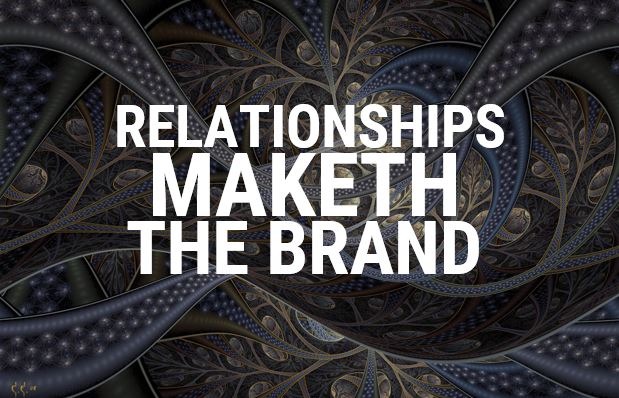
Yes, even in B2B marketing.
Okay, so by now you’ve accepted that social media can be a great marketing tool.
But you’re probably thinking: “Sure, social media’s great for selling Kylie Jenner’s lip glosses, or all that Wayfair product placement, but my company sells relocation services to HR companies/LED light systems to architects/replacement parts to independent autobody shops. Our audience doesn’t buy stuff off social media.”
You’re right: No one’s clicking a link on Twitter and immediately placing an order for $7500 worth of relocation services. The thing is, that’s not how the sales for Kylie’s Lip Kits or Wayfair’s coffee tables work, either.
Except in very specific cases, social media doesn’t really deliver the instant gratification that everyone thinks is the hallmark of genius marketing. Sure, social media delivers ‘immediacy’ – but that doesn’t mean ‘immediate sales’.
Social media is about building trust – which really means that it’s building the brand.
Buying decisions are based on relationships.
B2B relationships are the same – but have different consequences.
Every consumer brand – every successful company – is built on relationships: Study after study says that consumers buy stuff from companies that they know and trust, and the only way to build trust is to build some kind of relationship. You already know this.
What you may not know is that B2B brands are built in exactly the same way: People still make buying decisions based on relationships, they still want to buy stuff from brands they know and trust, etc.
There’s one big difference: Projected potential consequences.
If I buy a Kylie Jenner lip kit, I’m probably hoping that my friends will be at least a little impressed with either the brand or the way the product looks on me. If they aren’t impressed, well, I’ve only lost a little face and $60. On the other hand, if I approve a $250,000 purchase for my company and it turns out poorly, my career, my reputation, and maybe even my job are on the line. So I need to really, really trust the company I’m buying from.
6 ways social media works for B2B marketing
Your company probably has a website and some basic materials. But let’s face it: Even the best-looking website and the most well-designed infosheets (because I haven’t yet met a B2B company that wasn’t in love with infosheets, especially when tucked into a glossy pocket folder) isn’t really doing a lot to build relationships with potential customers. Sure, the website confirms you’re a legit business which is sufficiently solvent to pay your hosting bills, and it may even do a good job of outlining your products and services and explaining why they’re better than the competition, and those infosheets give you something to hand out at tradeshows, but they’re not doing a whole lot to build the trust you need to get someone to write a cheque for $25,000.
I know you’re going to say that the whole ‘relationship-building’ thing is what your salespeople are supposed to do. But even the best, most diligent salespeople only have so many hours in a day. Every hour they spend trying to convince potential customers that your brand is trustworthy is an hour they aren’t spending actually selling stuff.
That’s where social media comes in. Here’s how:
- Reach. You may think your potential customers are old-school Luddites who look down on social media, but I guarantee you that 98% of them are more plugged in than you (and even they) think. Maybe they aren’t Snapchatting or tweeting every 5 minutes, but they’ve probably got a Facebook or LinkedIn account, or signed up on Instagram to check out their kids’ pictures. These are places your infosheets can’t reach, but social media content can – and with a more compelling message than the facts and figures on an infosheet.
- Better brand awareness. As any salesperson will tell you, the #1 time-suck for SMBs is simply getting their name out there, especially if they’re competing in a crowded marketplace or emerging industry, and especially in the absence of a big marketing budget. Over time, a consistent social media effort will give you the brand awareness you need to improve the number of potential customers who will actually take a call from one of your salespeople.
- Emotional engagement. No one likes to admit this, but it’s true: B2B purchasing decisions are made from the same emotional place as B2C purchasing decisions. So you have to engage the emotions of your potential customers, and that means your brand needs some kind of personality. Social media allows you to demonstrate that personality, with interesting commentary on industry news, amusing photographs of your office culture, a bit of back and forth with a favourite existing client – whatever. You don’t have to be ‘funny’ – you just have to be interesting.
- Responsiveness to customers. Social media can be a very public display of just how responsive you are to existing clients/customers. A corporate Twitter feed or Facebook page that includes responses to customer inquiries or even complaints sends a powerful message about your CRM in the longer term – and that builds trust.
- Thought leadership. You know your company does some of the best thinking in the industry; social media is the most cost-effective way to get it out there. All those presentations, position papers, analyses – they can all be repurposed for your blog, your employees’ LinkedIn pages, your Facebook page, Slideshare, etc.
- SEO and improved rankings. The first step in a B2B purchase is often a quick Google search to establish a shortlist. You can’t get on that shortlist if you don’t show up until the 5th page of search returns and/or don’t have big bucks to spend on Adwords. Social media – a consistent social media strategy over the long term – can help improve those rankings, simply by ensuring there is more content, on more sites, with your name on it. And studies have shown that higher search rankings often equate to higher levels of trust.
The bottom line? Stop thinking that social media is only for B2C – and start using it to build trusted relationships with your potential customers.

